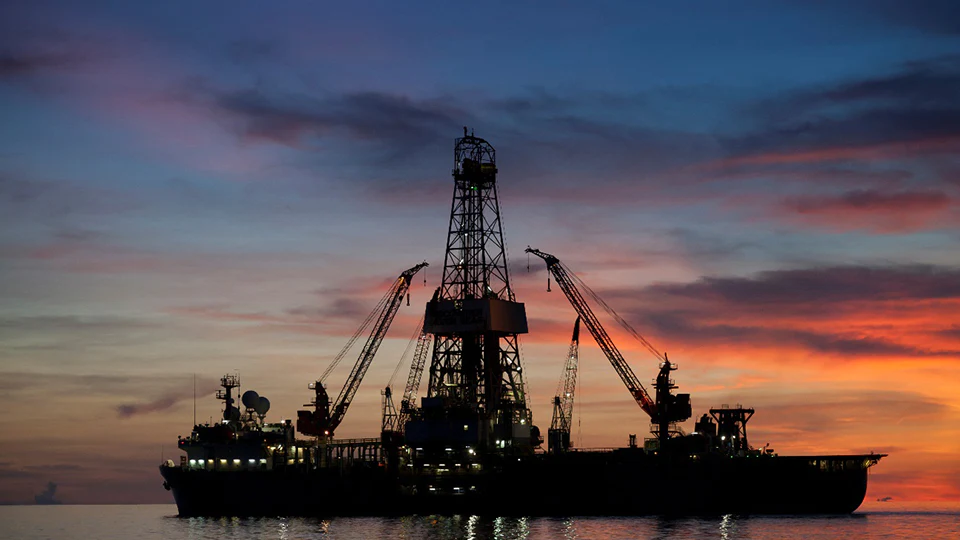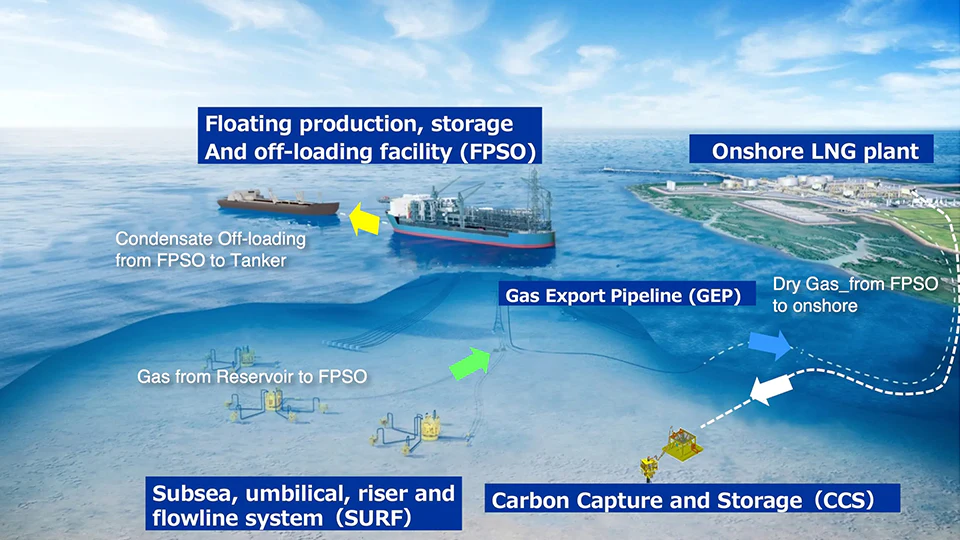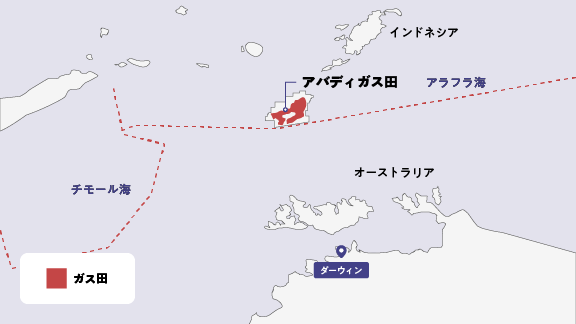
| Contract area (block) | Project status | Production scale | Venture company (established) | Interest owned (*Operator) | Contract type |
|---|---|---|---|---|---|
| Masela | Preparation for development |
|
INPEX Masela, Ltd. (Dec. 2, 1998) |
|
Production Sharing Agreement (until Nov. 15, 2055) |
Project History
| 1998 | INPEX acquires 100% interest in Masela Block |
|---|---|
| 2000 | Discovery of Abadi Gas Field |
| July 2019 | Indonesian government approves development plan to produce 9.5 million tons of LNG per year |
| October 2023 | Pertamina and PETRONAS join the project as new partners |
| December 2023 | Indonesian government approves a revised development plan incorporating CCS |
| August 2025 | FEED (Front End Engineering and Design) commences |
Approval of revised development plan and participation of new partners
The INPEX-operated Abadi LNG Project is one of the largest projects in Asia. Once started up, this project will enable a stable supply of energy over the long term in Asia. By liquefying natural gas from the Abadi Gas Field at an onshore LNG facility, the project is expected to produce approximately 9.5 million tons of LNG per year, up to 35,000 barrels of condensate per day and approximately 150 million cubic feet of natural gas per day.
An initial development plan was approved by the Indonesian government in 2019. However, aspiring to make the project cleaner ensuring long-term competitiveness and improving sustainability, we decided to introduce CCS and submitted a revised development plan to the Indonesian government in April 2023, which was approved in December 2023. Additionally, Indonesia's Pertamina and Malaysia's PETRONAS joined the project as new partners in October 2023. Both partners are companies with extensive experience in oil and gas development in Indonesia and LNG projects globally.

Responding to natural gas demand in Asia
In close coordination and cooperation with our partners, Pertamina and Petronas, we commenced front-end engineering design (FEED) work in August 2025. We are also steadily proceeding with the necessary development preparation work for the final investment decision (FID), such as obtaining environmental and social impact assessments and related approvals, securing land for the project, marketing activities for LNG sales, and financing discussions.
Achievement of both cleaner energy and cost competitiveness
Realizing a net zero carbon society is an urgent challenge. In this project, we plan to neutralize the CO2 emitted from natural gas production at the Abadi Gas Field through the introduction of CCS. This project is expected to be the first LNG project where CCS, commencing at the same time as production, will be eligible for cost recovery based on the production sharing contract (PSC) framework governing upstream oil and natural gas projects in Indonesia.
Production sharing contracts are agreements by which an oil and natural gas development company serves as a contractor that undertakes exploration and development work on a project on behalf of the governments of oil-producing countries at its own expense. When exploration and development work results in the production of oil or natural gas, the contractor recovers the exploration and development costs it incurred by means of a share in the crude oil or natural gas produced. The remaining portion is shared between the oil-producing country and the contractor according to a fixed allocation ratio.
These production sharing contracts are used in the development and production of oil and natural gas in Indonesia. Government approval is required when determining the extent of allowable cost recovery, and a greater extent of cost recovery leads to improved cash flow and project economics for the contractor.
Improvement of energy security in Asian countries
Strong demand for natural gas in Asian countries is expected to continue as gas is widely considered as one of the major energy sources that will help realize the energy transition. Taking advantage of the strategic location of this large-scale LNG project, which is one of few in the Asia Pacific region, we plan to widely market the LNG to buyers in Indonesia where demand is expected to grow, as well as to traditional LNG buyers in East Asia and emerging buyers in Southeast Asia, South Asia and elsewhere.
